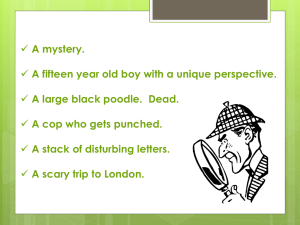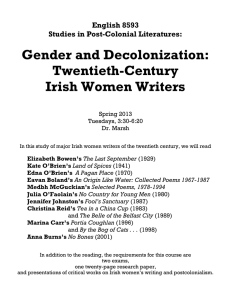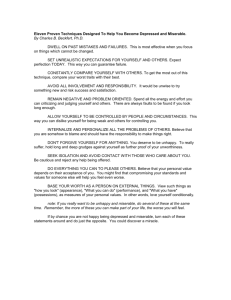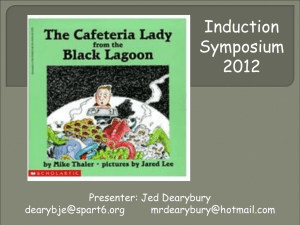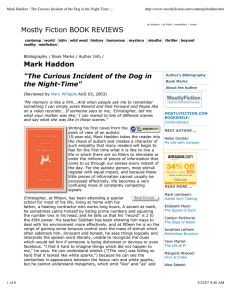Students Entering Grade 11
advertisement
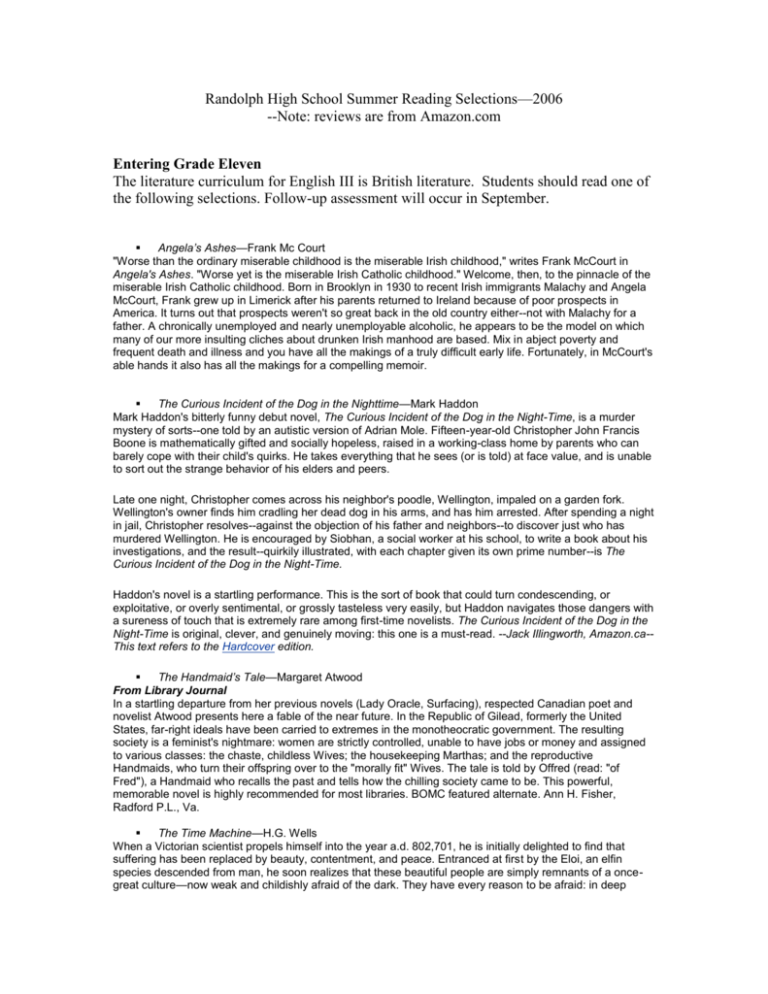
Randolph High School Summer Reading Selections—2006 --Note: reviews are from Amazon.com Entering Grade Eleven The literature curriculum for English III is British literature. Students should read one of the following selections. Follow-up assessment will occur in September. Angela’s Ashes—Frank Mc Court "Worse than the ordinary miserable childhood is the miserable Irish childhood," writes Frank McCourt in Angela's Ashes. "Worse yet is the miserable Irish Catholic childhood." Welcome, then, to the pinnacle of the miserable Irish Catholic childhood. Born in Brooklyn in 1930 to recent Irish immigrants Malachy and Angela McCourt, Frank grew up in Limerick after his parents returned to Ireland because of poor prospects in America. It turns out that prospects weren't so great back in the old country either--not with Malachy for a father. A chronically unemployed and nearly unemployable alcoholic, he appears to be the model on which many of our more insulting cliches about drunken Irish manhood are based. Mix in abject poverty and frequent death and illness and you have all the makings of a truly difficult early life. Fortunately, in McCourt's able hands it also has all the makings for a compelling memoir. The Curious Incident of the Dog in the Nighttime—Mark Haddon Mark Haddon's bitterly funny debut novel, The Curious Incident of the Dog in the Night-Time, is a murder mystery of sorts--one told by an autistic version of Adrian Mole. Fifteen-year-old Christopher John Francis Boone is mathematically gifted and socially hopeless, raised in a working-class home by parents who can barely cope with their child's quirks. He takes everything that he sees (or is told) at face value, and is unable to sort out the strange behavior of his elders and peers. Late one night, Christopher comes across his neighbor's poodle, Wellington, impaled on a garden fork. Wellington's owner finds him cradling her dead dog in his arms, and has him arrested. After spending a night in jail, Christopher resolves--against the objection of his father and neighbors--to discover just who has murdered Wellington. He is encouraged by Siobhan, a social worker at his school, to write a book about his investigations, and the result--quirkily illustrated, with each chapter given its own prime number--is The Curious Incident of the Dog in the Night-Time. Haddon's novel is a startling performance. This is the sort of book that could turn condescending, or exploitative, or overly sentimental, or grossly tasteless very easily, but Haddon navigates those dangers with a sureness of touch that is extremely rare among first-time novelists. The Curious Incident of the Dog in the Night-Time is original, clever, and genuinely moving: this one is a must-read. --Jack Illingworth, Amazon.ca-This text refers to the Hardcover edition. The Handmaid’s Tale—Margaret Atwood From Library Journal In a startling departure from her previous novels (Lady Oracle, Surfacing), respected Canadian poet and novelist Atwood presents here a fable of the near future. In the Republic of Gilead, formerly the United States, far-right ideals have been carried to extremes in the monotheocratic government. The resulting society is a feminist's nightmare: women are strictly controlled, unable to have jobs or money and assigned to various classes: the chaste, childless Wives; the housekeeping Marthas; and the reproductive Handmaids, who turn their offspring over to the "morally fit" Wives. The tale is told by Offred (read: "of Fred"), a Handmaid who recalls the past and tells how the chilling society came to be. This powerful, memorable novel is highly recommended for most libraries. BOMC featured alternate. Ann H. Fisher, Radford P.L., Va. The Time Machine—H.G. Wells When a Victorian scientist propels himself into the year a.d. 802,701, he is initially delighted to find that suffering has been replaced by beauty, contentment, and peace. Entranced at first by the Eloi, an elfin species descended from man, he soon realizes that these beautiful people are simply remnants of a oncegreat culture—now weak and childishly afraid of the dark. They have every reason to be afraid: in deep tunnels beneath their paradise lurks another race descended from humanity—the sinister Morlocks. And when the scientist’s time machine vanishes, it becomes clear he must search these tunnels if he is ever to return to his own era. The Elephant Man—Bernard Pomerance The Elephant Man was first produced in London at the Hampstead Theatre. It soon moved to New York and opened Off-Broadway at the Theatre of St. Peter’s Church, and then to Broadway and the Booth Theatre. Pomerance’s play earned good reviews and a number of awards, including a Tony Award, the New York Drama Critics award, the Drama Desk Award, and the Obie Award. The play is based on the story of Joseph Merrick; in large part, it draws from the book by Frederick Treves, which chronicles Merrick’s life story. Critics applauded Pomerance’s efforts to depict the conflict that results when Treves saves Merrick from the freak shows only to exploit Merrick himself.
